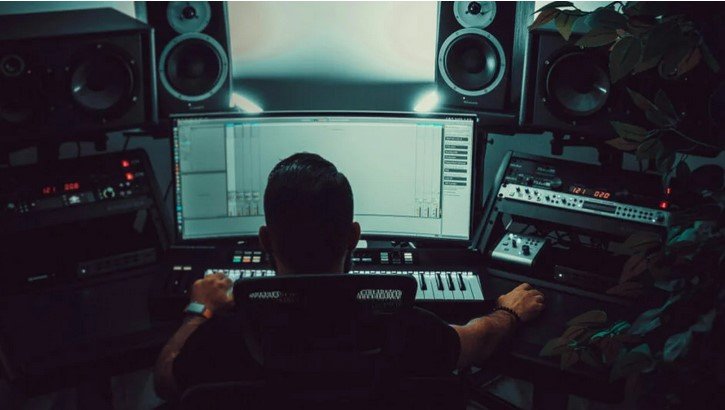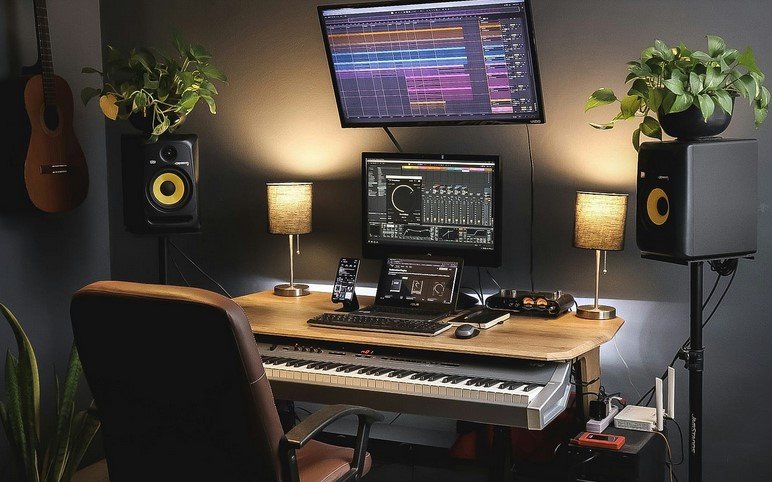The art of film score composing plays a crucial role in shaping the cinematic experience. A well-crafted score can evoke emotions, enhance storytelling, and transport audiences into the film’s world. This post delves into the intricacies of film score composing, exploring its significance, creative process, and impact on the overall narrative.

Understanding the Importance of Film Scores
1. Emotional Resonance
Film scores serve as a powerful tool for emotional storytelling. Composers create music that complements the visuals, guiding the audience’s emotional journey throughout the film. A poignant score can amplify moments of joy, sadness, tension, or suspense, making the viewing experience more immersive. For instance, the sweeping strings in romantic scenes or the intense percussion in action sequences heighten emotional responses.
2. Establishing Themes and Motifs
Scores often introduce specific themes or motifs that represent characters, settings, or pivotal moments. These musical signatures help audiences connect with the narrative on a deeper level. When a character’s theme reappears throughout the film, it reinforces their arc and creates a sense of continuity. Iconic examples include John Williams’ themes for characters like Darth Vader or Indiana Jones, which instantly evoke familiarity and emotion.
The Creative Process of Composing
1. Collaboration with Filmmakers
Successful film score composing often involves close collaboration between the composer and the director. Early discussions set the tone for the music, allowing the composer to understand the director’s vision. Composers may watch rough cuts of the film to identify key emotional beats, pacing, and character development. This collaboration ensures that the score aligns seamlessly with the film’s narrative.
2. Experimentation and Exploration
Composing a film score often requires experimentation with various musical styles, instruments, and arrangements. Composers explore different sounds to find the right fit for the film’s mood. This creative exploration might involve using traditional orchestral instruments, electronic elements, or even unconventional sounds. For example, the use of synthesizers in horror films creates an eerie atmosphere that enhances tension and fear.
The Impact of Technology on Film Scoring
1. Digital Tools and Software
Advancements in technology have transformed the art of film score composing. Composers now use digital audio workstations (DAWs) to compose, record, and produce music. Software instruments allow composers to create realistic orchestral sounds without the need for a full orchestra. This accessibility enables composers to experiment with their scores, providing more creative freedom.
2. Streaming and Distribution
The rise of streaming platforms has changed how film scores reach audiences. With films increasingly being released on platforms like Netflix and Amazon Prime, scores now have a broader audience. Additionally, composers can release their scores as standalone albums, allowing fans to enjoy the music outside of the film. This trend highlights the growing recognition of film scores as standalone art forms.
Notable Film Composers
1. Hans Zimmer
Hans Zimmer stands out as one of the most influential film composers. His innovative use of electronic elements and orchestration has redefined film scoring. Scores for films like “Inception” and “The Lion King” showcase his ability to blend emotional depth with unique soundscapes.
2. Ennio Morricone
Ennio Morricone left an indelible mark on film music, known for his memorable themes and innovative compositions. His work on spaghetti westerns, particularly “The Good, The Bad and The Ugly,” showcased his talent for creating music that becomes synonymous with the film.
Conclusion
The art of film score composing plays an essential role in shaping the cinematic experience. Through emotional resonance, thematic development, and collaboration, composers create music that enhances storytelling and elevates the film’s impact. As technology continues to evolve, so too does the art of film scoring, expanding its reach and appreciation. Ultimately, the score is not just an accompaniment; it is a vital element that enriches the film and lingers in the hearts and minds of audiences long after the credits roll.




